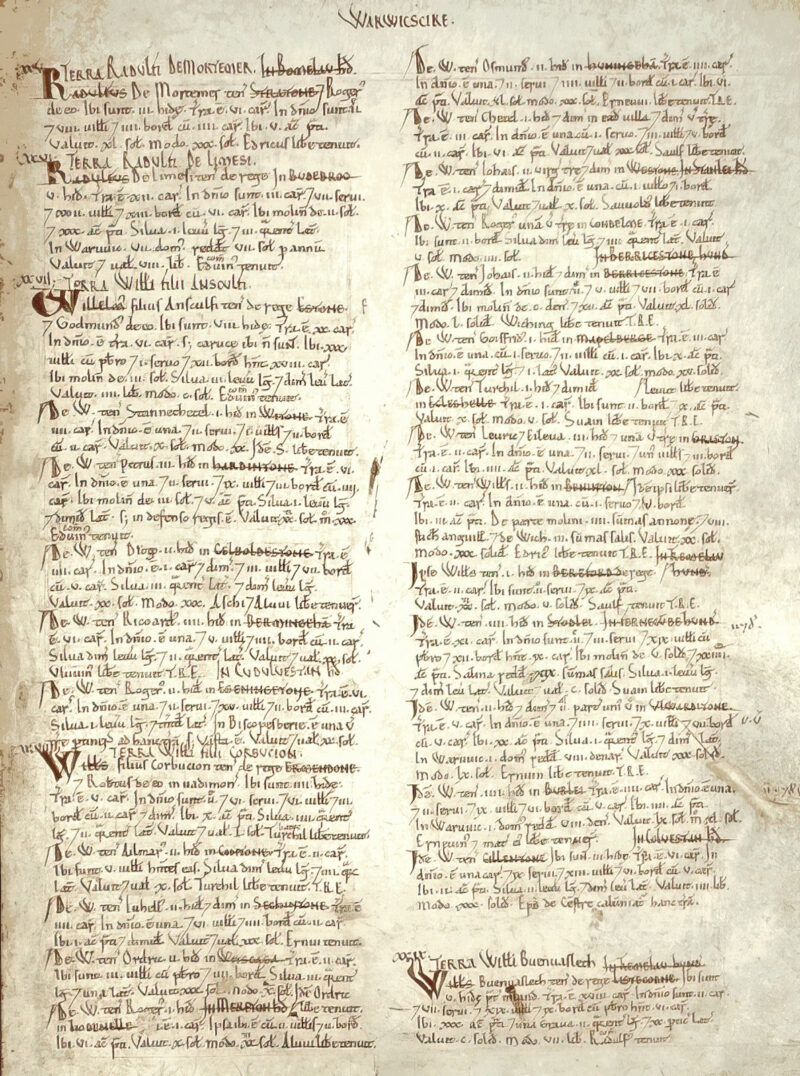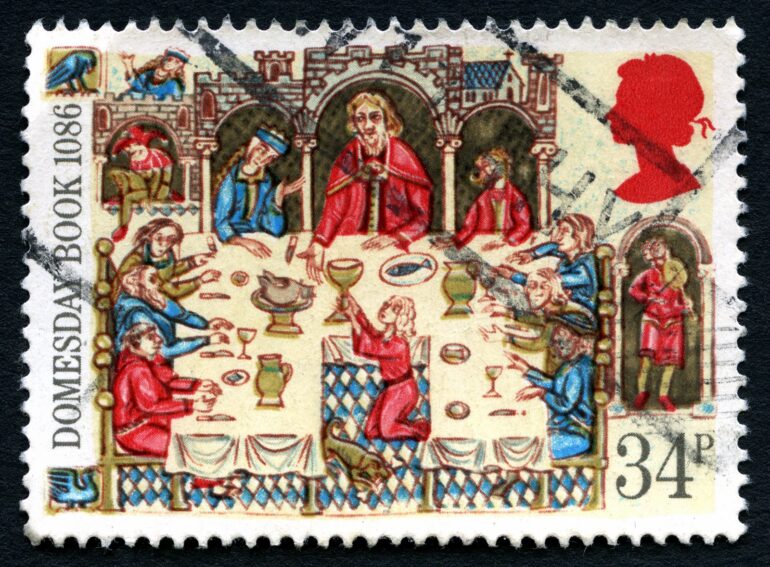Ancient sources of surnames for genealogy
The Domesday Book and the Hundred Rolls are referenced many times on this site, and were used as source materials for hundreds of the names listed.
But what are they? Here’s a quick primer.
The history of the use of last names
“In the eleventh and twelfth centuries… nomenclature began to assume a solid, lasting basis. It was the result, in fact, of an insensibly growing necessity.
Population was on the increase, commerce was spreading, and society was fast becoming corporate; with all this arose difficulties of individualization.
“It was impossible, without some further distinction, to maintain a current identity. Hence, what had been but an occasional and irregular custom became a fixed and general practice … part and parcel of a man’s property, and passed on with his other possessions to his direct descendants.”
– Charles Wareing Endell Bardsley, English Surnames: Their Sources and Significations (1875)
THE DOMESDAY BOOK
The Domesday Book is the result of a record made at the time of William the Conqueror’s survey of England in 1086. It is the starting point of recorded history for the majority of English villages and towns which are organized by county.
This first English census, considered by some as the most remarkable administrative accomplishment of the Middle Ages, provides a record of English social organization in the Anglo-Norman period.
It is a faithful summary of all the lands of his realm (three or four northern counties excepted), and contains the names of their proprietors.
Sir Henry Ellis’s General Introduction to Domesday, published in 1833, contains lists of all the tenants, from which it is evident that surnames of the heritable kind were very unusual, many even of the great Norman proprietors being entered simply by their Christian name, or by that accompanied by some description, and sometimes the same tenant is called by different names in different places.

THE HUNDRED ROLLS
The Hundred Rolls (Rotuli Hundredorum) are surveys of land ownership sent out by Edward I to officials of all parts of England in the 13th century, to create a record of the population for judicial and taxation purposes. The two main inquiries were made in 1274-1275 and 1279-1280.
The Indices Nominum of these volumes contain references to about 70,000 persons.
The period at which the Rolls were drawn up was one when family names, which had been gradually coming into use for nearly two centuries, had become general among all classes of persons; not indeed with the regularity which prevailed in later centuries, though almost every individual mentioned in the record bears a surname of some kind.
Some of the surnames are in Latin, some in French, and some in English.





